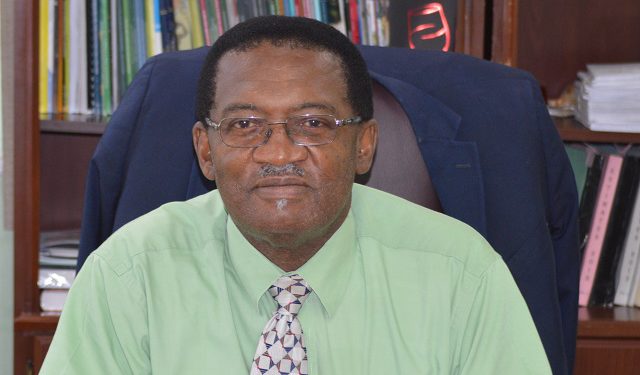Basseterre, St. Kitts, September 26, 2016 (SKNIS): The Ministry of Agriculture commemorates the launch of Pesticides Week 2016 from Sunday, September 25 to Friday, September 30, under the theme “Manage Pesticides Responsibly – adapt to climate change”.
Minister of Agriculture and Environment, the Honourable Eugene Hamilton, commented on the theme, particularly the effects of climate change.
“While it may be difficult to show how climate change has impacted pesticide use or efficacy, the use of chemicals in Public health or producing food that we consume every day is mind boggling and we seemed forced into using more chemicals because of prolonged, adverse and unfavourable weather phenomena caused by climate change,” said Minister Hamilton. “Pesticide use has enabled advancement in food output mainly through the control of pests, diseases and weeds. In our modern society, usage of chemical pesticides has become essential, because of the reality of eliminating food shortages.”
Minister Hamilton stated that “there are about 8 billion people to feed each day and some countries are producing very little”.
“The more dependent we are on the developed world, the more they seek ways to increase output; and pesticides are a part of their option coupled with strategies like genetic engineering; no tillage, plant breeding and use of hybrids to name some strategies,” he said. “As a Country uses more and more chemicals to achieve aspects of its sustainable goals, it exacerbates the risk of environmental degradation, especially if used incorrectly. And this causes adverse impacts on the natural habitat and on the health of all humans.”
The Agriculture Minister said that although environmental degradation may not be very obvious in St. Kitts and Nevis due to the lack of run off contaminants into swamps or ground water, it still possess a huge problem globally and it is a troubling practice which can significantly damage the environment..
“Resulting from the foregoing, we in St. Kitts and Nevis must, and have begun prioritizing and managing such risks,” he said. “My Ministry of Agriculture and Environment has begun monitoring and doing assessments of pesticides and other toxic chemicals that have been residing in the Federation during the production of Sugar cane. And further, we are careful in considering what chemicals are entering the country or have already been distributed.”









